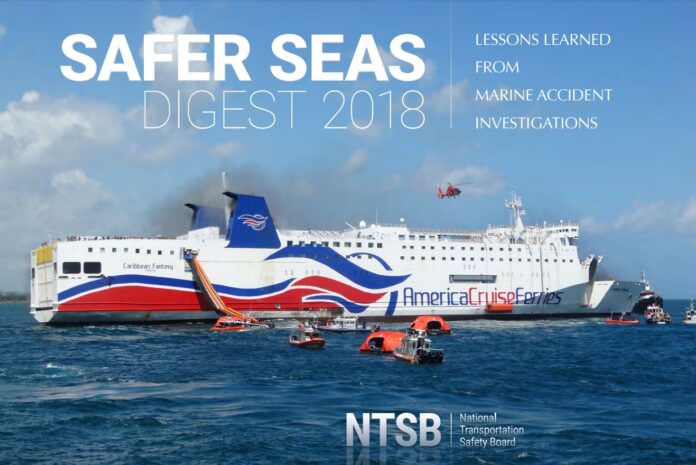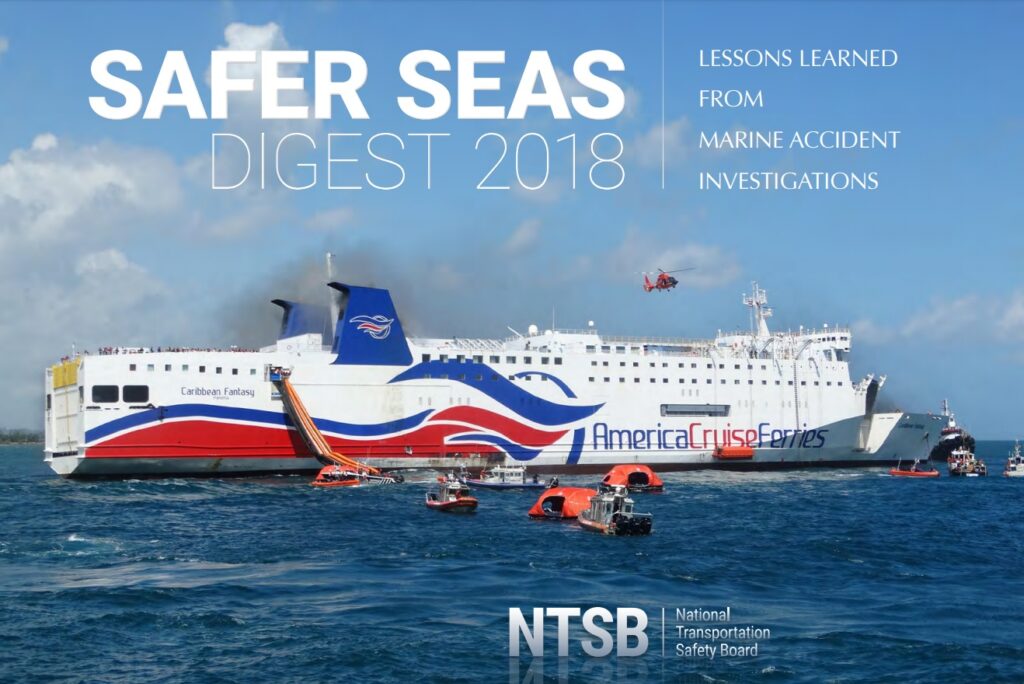
(www.MaritimeCyprus.com) The US National Transportation Safety Board (NTSB) determines the probable cause of the accidents and issues safety recommendations aimed at preventing future accidents. In addition, the NTSB carries out special studies concerning transportation safety and coordinates the resources of the federal government and other organizations to provide assistance to victims and their family members impacted by major transportation disasters.
Â
The 30 marine accidents included in Safer Seas Digest 2018 involved contact with fixed objects, breakaways, sinkings, collisions, fires, floodings, groundings, and other vessel damage. The vessels ranged from personal crafts to oceangoing passenger ships and vehicle carriers.
The accidents recounted here resulted in numerous injuries and significant property damage, and worst of all, the loss of nine crewmembers and passengers. While reading through these accidents, I was struck more than once by how many of them could have become even greater tragedies.
What an effective teacher experience can be, if we choose to learn the lessons of accidents. The “Lessons Learned†section at the end of this publication should be of interest to mariners and management alike.
The safety issues examined in the 2018 edition of Safer Seas include:
- High-water/high-current conditions
- Watertight integrity
- Training for emergencies
- Remote emergency shutdowns
- Ice accumulation
- Reporting issues
- Cooling water chemistry
- Threaded fasteners and components
- Mooring in strong winds
- Identifying navigation hazards
- Fixed ventilation openings
- Recognizing metal fatigue in propeller shafting
- Precautions while unloading catch
- Alternative emergency communications in Alaska region
For more details, click on below image to download full report:

For more Marine Accident Investigation Reports, click here.
Source:Â NTSB














